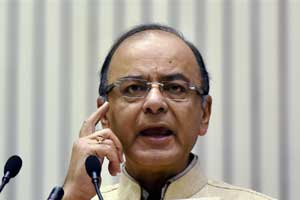The government will soon set up an expert group to look into consolidation of public sector banks, as the country needs stronger rather than a large number of banks, finance minister Arun Jaitley said on Saturday. Speaking at the conclusion of the second edition of Gyan Sangam, the FM said consolidation in the banking sector was discussed at the meeting and bankers themselves have suggested that an expert group should be set up soon to look into the issue.
“You need strong banks rather than a larger number. There could be niche banks and banks which could survive independently and sustain themselves well,” he said.
Taking a cue from the asset quality review by the Reserve Bank of India (RBI), which quantified the system-wide stress, Gyan Sangam 2 focused on the resolution of toxic assets. There were discussions on how asset reconstruction companies (ARCs) could be brought into the process and what the necessary pricing would be when loans are sold to the ARCs.
The finance minister said bankers have made several suggestions with regard to amendments to the Securitisation and Reconstruction of Financial Assets and Enforcement of Security Interest (SARFAESI) Act and the debts recovery tribunals (DRTs), which the department of financial services is at a very advanced stage of consideration.
The government, Jaitley said, is actively considering the issue of employee stock ownership plan (ESOP). “The third thing that the government is independently considering, again at an advanced stage, is the whole idea of ESOPs for bank employees. There has been a long-standing demand and it has been receiving our active consideration,” he said.
Sending a strong message to bank loan defaulters, the FM said no defaulter has ever got any reprieve and will never get one in future as well. He lauded the efforts made by banks in recovering bad debts and said banks already have tools like like SARFAESI, DRT and SDR, among others, to resolve stressed assets. According to Jaitley, taking cognisance of the aggressive approach of banks, some borrowers are trying to take unscrupulous actions like transferring of assets elsewhere and not repaying their loans. “There has only been a change in provisioning, but that does not mean any defaulter will get reprieve from banks,” he said.



